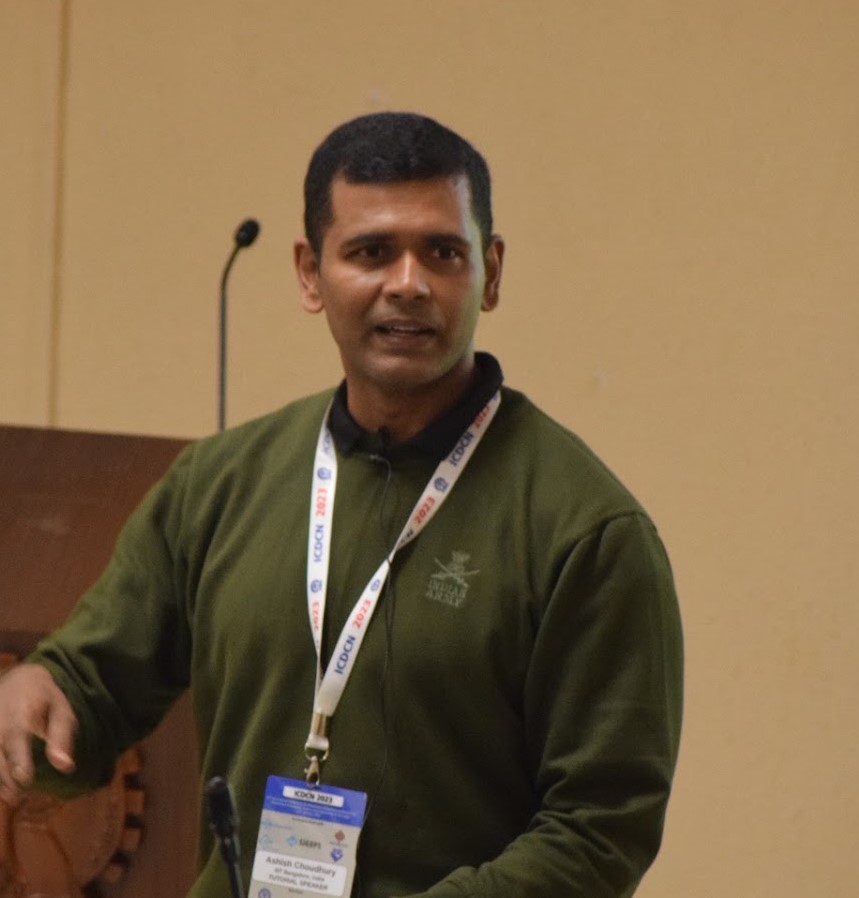Ashish Choudhury
Eminent Speaker
Short CV:
Ashish Choudhury is currently an associate professor at IIIT Bangalore where he previously held the Infosys Foundations career development chair professor position. He received his MS (by research) and PhD degrees from IIT Madras and did his postdoc at ISI Kolkata and the University of Bristol. His research interests include secure multiparty computation and classical consensus protocols. His works have appeared in reputed journals like the Journal of ACM, Journal of Cryptology, Theoretical Computer Science, Distributed Computing, IEEE Transactions of Information Theory and flagship conferences like CRYPTO, ASIACRYPT, PODC, DISC and TCC. He has been teaching multiple courses on cryptography and Discrete Maths on NPTEL. Recently he published a research monogram on Secure Multiparty Computation with Arpita Patra as part of the Synthesis Lecture series on Distributed Computing.
Title of Talk 1: Yao's Protocol for Secure 2-Party Computation
Synopsis: In his foundational work published in FOCS 1982, the Turing Award winner Andrew Yao proposed his foundational protocol for Secure 2-party Computation (secure 2PC). The protocol allows any two mutually-distrusting parties with private inputs, to securely compute any joint function over their inputs, without disclosing their respective inputs to each other. Yao's protocol constitutes a landmark result in the area of secure distributed computing and in fact, it is the first protocol proposed for secure 2PC. Over the years, several optimizations have been made to Yao's protocol and some of these optimized versions are now deployed in practice. In this talk, we will see and understand Yao's foundational protocol from a layman's perspective. We will also discuss some of the most recent practical optimizations of the protocol. The talk will assume no background about cryptography from the audience.
Title of Talk 2: The BGW Protocol for Perfectly Secure MultiParty Computation
Synopsis: Secure Multiparty Computation (MPC) is a fundamental problem, both in cryptography as well as distributed computing. Informally, an MPC protocol allows a set of mutually distrusting parties with private inputs to securely compute any joint function of their inputs, by keeping their respective inputs as private as possible. Due to its powerful abstract, the MPC problem has been widely studied over the last several decades. One of the pioneering results in this domain is attributed to BenOr-Goldwasser-Wigderson, who in their foundational STOC 1988 paper proposed the first perfectly-secure MPC protocol. The protocol often referred to as the BGW protocol in the literature remains secure even if a computationally unbounded adversary corrupts a fraction of the protocol participants. Since the security of the protocol is not based on any computational hardness assumptions, it provides everlasting security. The BGW protocol laid the foundation for the plethora of perfectly-secure MPC protocols, which followed after the publication of the BGW protocol. In this talk, we will see and understand this foundational result from a layman's perspective, without assuming any background in cryptography.
Title of Talk 3: Fault-Tolerant Distributed Consensus
Synopsis: Fault-tolerant distributed consensus (also known as the Byzantine generals or Byzantine agreement problem) allows a set of mutually distrusting parties who are distributed in a network, to reach a consensus on a common value, even if a subset of the parties malfunctions and behave arbitrarily during the protocol execution. The problem was introduced by Pease, Shostak and Lamport in their foundational work published in JACM 1980. The consensus problem has received renewed interest recently from various communities, thanks to the advent of blockchain technology, since a blockchain protocol is just an instantiation of a distributed consensus protocol. In this talk, we will discuss some of the classical consensus protocols and some of the fundamental impossibility results in this domain. We will also see how some of the ideas from the classical consensus protocols are deployed in modern blockchain protocols.

Ashish Choudhury
Qualifications: PhD
Title: Associate Professor
Affiliation: International Institute of Information Technology Bangalore
LinkedIn:
Twitter/X:
Facebook:
Instagram:
Email:
About the speaker: